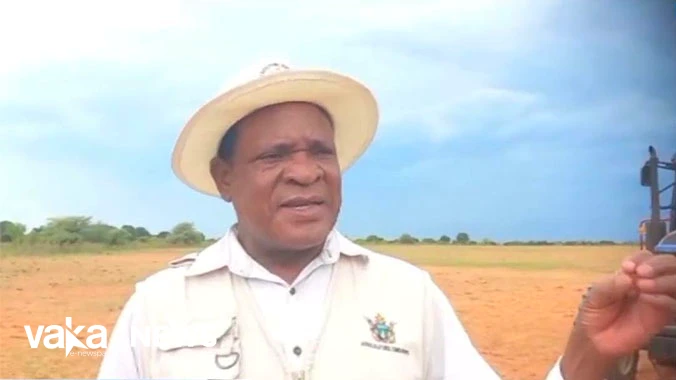Govt orders illegal settlers off State land
- Category: Real Estate

- By Dion Kajokoto
FOLLOWING the recent up-tick in illegal settlements on agricultural land and pastures across rural and urban areas, Government has ordered the concerned culprits to promptly vacate the areas or face the wrath of the law.
The Land Commission Act states that occupying State property without proper authorization—such as a permission, an offer letter, or a lease—is illegal under the Gazetted Lands (Consequential Provisions) Act.
Additionally, traditional leaders are prohibited from selling land, and those found guilty will face consequences.
The government will not regularize anyone who settles on State land without properly issued tenure documents, according to Minister of Lands, Agriculture, Fisheries, Water, and Rural Development Dr. Anxious Masuka. She further warned that in such circumstances, the entire force of the law will be used.
The growing number of unauthorized settlers on agricultural land has been observed by the government with worry. Because he oversees the implementation of pertinent Acts that the President has delegated to him, the Minister of Lands, Agriculture, Fisheries, Water, and Rural Development is the only person authorized to issue tenure documents on agricultural land, he said.
Ezra Chadzamira, the Minister of State for Provincial Affairs and Devolution in Masvingo, repeated Dr. Masuka's caution, advising the concerned individuals to adhere to the proper processes instead of continuing to live on unapproved land.
"You are to leave right away and acquire land in accordance with the legal procedures. Without reservation, the government denounces the unlawful occupations, settlements, and sales of land without the approval of the appropriate authorities.
"The President owns the land. Nobody has the authority to divide up land except those who have been given authority by different departments. Report these kinds of acts, he urged.
The government has ordered all local governments to stop selling agricultural and communal land as soon as possible.
The project has been well received by the general public in Zimbabwe, who believe that legal land acquisition is necessary for environmental preservation and that land reform laws are being broken by illegal land acquisition methods.
According to Warren Park 1 resident Stanley Magwaza, property intended for farming shouldn't be utilized for other uses.
"This is a step in the right direction that is positive." We are here to support the initiative and we value the government's efforts. If the land is used for what it was intended for, we are also guaranteed food security.
"A residential area and agricultural land are not comparable." Furthermore, this causes a great deal of issues because that kind of area is unsuitable for human habitation," he stated.
According to Kambuzuma resident Mr. John Kandiero, in order to avoid ruining the lives of future generations, individuals should make sure they follow the right procedures while purchasing land.
"Land used for agriculture is not intended for residential use. Because the land is not properly serviced to ensure correct drainage, drinking water is likely to be contaminated, which leads to the spread of diseases. As a result, we are witnessing families suffering from floods and diseases spreading," the speaker stated.
Building homes on agricultural land, according to Hopley Farm resident Terrence Chakanyuka, jeopardized the security of food and nutrition.
The effort to establish food and nutrition security is harmed by such acts. Land acquisition need to be done legitimately, he stated.
Under the Zimbabwe Land Commission Act (Chapters 20–29) and the Gazetted Lands (Consequential Provisions) Act (Chapters 20–28), it is illegal to occupy State property without a valid permit, offer letter, or lease.
Concurrently, the Zimbabwe Lands Commission (ZLC) effectively concluded its land audit process, devising a Land Information Management System (LIMS) to address problems including duplicate allocations and multiple farm ownership. President Mnangagwa has been presented with the final report, which encompasses 254 538 farms throughout the nation.






